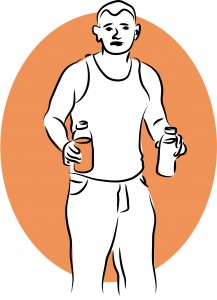In recent news, women and alcohol have become a scary reality. It has become more apparent that the number of women abusing alcohol is a pressing and, at times, life-threatening issue. According to the FBI, more women are being arrested nationally for driving while under the influence of drugs or alcohol (up 28% from 1998), and about 5.3 million women in the U.S. threaten their health and safety with the use of alcohol.
Women and alcohol is not always a good mix.  Many women think that extra cocktail when out with the ladies or another glass of wine with dinner won’t hurt. However, surprisingly, there is a fine line between moderate and excessive drinking. According to U.S. Dietary Guidelines, women should not have more than one alcoholic drink a day (12 ounces of beer, 5 ounces of wine or 1.5 ounces of 80-proof distilled spirits).
Many women think that extra cocktail when out with the ladies or another glass of wine with dinner won’t hurt. However, surprisingly, there is a fine line between moderate and excessive drinking. According to U.S. Dietary Guidelines, women should not have more than one alcoholic drink a day (12 ounces of beer, 5 ounces of wine or 1.5 ounces of 80-proof distilled spirits).
But more so than quantifying how much is too much, it’s important to take a look at why this drink limit is crucial to women’s health. Although the drink limit is greater for men, and men are two to three times more likely to abuse alcohol then women, women who abuse alcohol are significantly more likely to have medical problems and develop them earlier in their substance abuse than men. For example, if a woman drinks the same amount as a man, she’s more likely, according to the University of North Dakota School of Medicine and Health Sciences, to develop liver-related disease.
Some of this might be due to women’s bodies having a lower water content than men. Their bodies also tend to break down acetaldehyde (a toxic byproduct of alcohol) more slowly so it stays in the liver longer. Scientists have also found that women’s higher levels of estrogen make some liver cells more sensitive to alcohol’s toxic effect. According to British Million Woman Study, as little as one alcoholic drink a day may increase women’s risk for cancers of the mouth, throat, esophagus and rectum. Women drinkers are also more likely to get stomach ulcers as a result of drinking, and for some, risk for breast cancer increases. Though the resveratrol in red wine has shown to have heart healthy benefits, drink more than the recommended glass per day and those benefits are reversed. In fact, heavy drinking is the leading cause of cardiovascular disease.
Understanding how these risks might outweigh some of the benefits is important even for light to moderate drinkers. And for those who worry they might be drinking too much, take the following quiz at LifeScript.com.
Here are some warning signs of possible alcohol abuse:
- Can never stick to “just one” drink.
- Regularly drink more than you intended to.
- Feel guilty or ashamed about your drinking.
- Lie to others or attempt to hide your drinking habits.
- Have friends or family who have express their concern about your drinking habits.
- Need to drink in order to relax or feel better.
- Ever “black out” or forget what you did while you were drinking.
- Repeatedly neglect responsibilities at home, work, or school due to alcohol use.
- Continue to drink despite relationship problems it’s causing.
- Drink in physically dangerous situations such as driving or mixing with prescription drugs.
- Repeated legal problems due to alcohol.
- Experience cravings, tolerance, or withdrawal symptoms.




